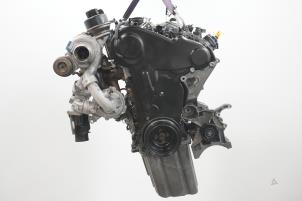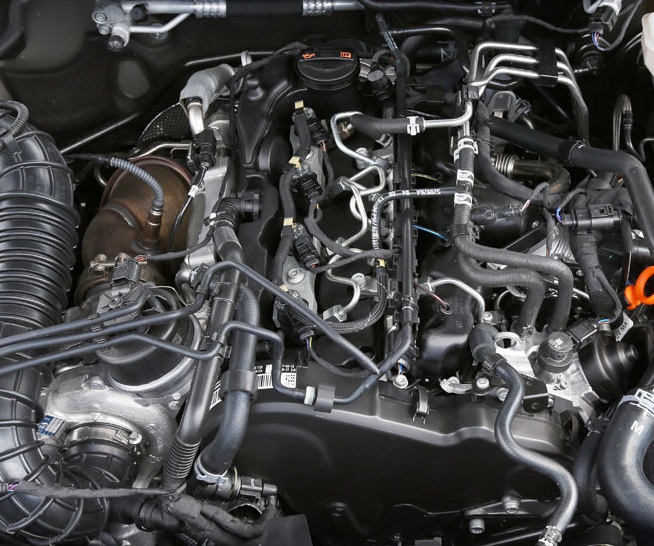Essential Factors To Consider and Tips for Selecting the Right Engine for Your Demands
Selecting the right engine is a multifaceted choice that needs careful consideration of numerous variables to make certain optimum performance for your certain requirements. The ins and outs of engine choice expand past these fundamentals, prompting a closer exam of critical elements that can ultimately influence your satisfaction and success.
Determine Your Purpose
Identifying your objective is an essential very first step in selecting the best engine for your demands. Recognizing the particular application you desire will certainly lead your decision-making process and make sure that you select an engine that straightens with your operational demands. Whether you require an engine for an industrial lorry, industrial equipment, or an entertainment job, each circumstance demands different efficiency characteristics and abilities.
Take into consideration the atmosphere in which the engine will certainly run. Will it go through hefty lots, extreme temperature levels, or prolonged use? Analyzing these factors will aid you recognize the required power result, gas efficiency, and longevity needed to satisfy your purposes.
Furthermore, think of the long-lasting effects of your option. Budget plan restraints, maintenance demands, and availability of components are essential considerations that will influence your total satisfaction and operational efficiency.
Inevitably, expressing your objective will certainly enhance the choice process and empower you to make an informed decision. By plainly specifying your goals, you can assess potential engines better and choose one that not just fulfills your present requirements however also supports your future objectives.
Evaluate Engine Requirements
When you have clearly articulated your objective, the next action is to review engine specs. This process entails a detailed examination of numerous technological details that can considerably impact efficiency and suitability for your intended usage.
Begin by analyzing the engine's horsepower and torque ratings. Horse power is critical for establishing the engine's capability to perform job, while torque is necessary for comprehending exactly how well it can handle hefty tons or acceleration. Additionally, take into consideration the engine variation, as it frequently correlates with power result and performance.
Next, analyze the engine typeâEUR" whether it is a gasoline, diesel, or different gas engineâEUR" as each type has distinctive qualities and applications. Take note of the engine's arrangement (e.g., inline, V-type), as this can influence size, weight, and overall efficiency.
One more important facet is the engine's air conditioning system, which can influence dependability and maintenance needs. Lastly, assess the maker's online reputation and warranty offerings, as these can provide insights right into long-term performance and assistance. Completely examining these requirements will help make sure that you pick an engine that aligns with your operational goals and certain demands.
Take Into Consideration Fuel Effectiveness
Gas efficiency is an essential element to think about when picking an engine, as it directly influences functional costs and ecological sustainability. An engine's fuel efficiency is commonly determined in miles per gallon (MPG) for vehicles or in details fuel usage (SFC) for airplane and marine engines. Higher gas efficiency not only minimizes the quantity of gas taken in yet likewise lessens greenhouse gas exhausts, making it a liable choice for eco-conscious customers.
When examining engine options, it is necessary to assess the driving problems and intended use. Engines optimized for highway driving may display much better gas efficiency compared to those developed for stop-and-go web traffic. Furthermore, think about the engine's modern technology, such as turbocharging or crossbreed systems, which can substantially enhance fuel performance.

Assess Upkeep Needs

Start by examining the producer's suggested upkeep intervals and treatments. Some engines may need even more regular oil adjustments, filter replacements, you can find out more or specialized servicing, which can influence your operational downtime. Furthermore, take into consideration the availability of parts and the convenience of obtaining them. Engines with widespread appeal typically have lion's shares schedule, decreasing preparations throughout repairs.
An additional critical facet is the technological know-how needed for upkeep. Some engines may require customized training for service technicians, which could limit your options for solution providers. Assess whether the engine's style allows for easy accessibility to components typically requiring maintenance, as this can considerably influence labor costs.
Budget Plan Your Investment
Understanding maintenance demands is just one facet of picking the appropriate engine; economic factors to consider play a similarly crucial function (amarok engine for sale). Establishing a clear budget plan is critical, as it affects not just the preliminary purchase price however likewise long-lasting functional prices
When budgeting, take into consideration both the ahead of time prices and recurring costs such as fuel efficiency, maintenance, and potential repairs. A seemingly affordable engine may sustain greater costs over time as a result of poor gas economic climate or regular maintenance needs. Furthermore, assess the availability and expense of spare parts, as well as the service warranties used by producers, which can provide financial security against unpredicted costs.
It is additionally a good idea to element in potential funding options or renting plans, which can ease instant financial burdens. Balance your desire for advanced attributes with your budget plan restraints, making sure that you buy an engine that satisfies your performance needs without jeopardizing financial stability.
Ultimately, an all-around budget will equip you to make educated choices, straightening your engine option with both your monetary capacities and operational demands, causing an extra lasting investment over time.

Verdict
In verdict, selecting the ideal engine requires an extensive understanding of particular requirements and applications. Mindful analysis of engine anchor requirements, fuel efficiency, and maintenance demands is crucial for notified decision-making.
Fuel efficiency is a useful content crucial factor to take into consideration when picking an engine, as it directly impacts functional expenses and environmental sustainability. An engine's gas effectiveness is generally measured in miles per gallon (MPG) for automobiles or in particular fuel intake (SFC) for aircraft and aquatic engines. Diesel engines normally offer far better gas efficiency than fuel engines. Eventually, selecting an engine with a solid focus on gas performance can lead to considerable long-term savings and add positively to ecological efforts. Cautious examination of engine specifications, gas efficiency, and upkeep needs is necessary for informed decision-making.